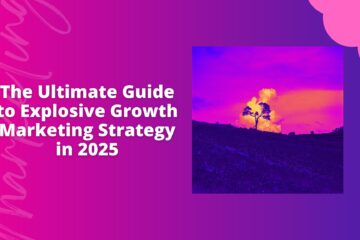
How to Work With a PR Agency Successfully

The value of a public relations component of a marketing strategy is undeniable. Who doesn’t want to see their brand featured in an article or mentioned on TV?
Building media relations requires a lot of time, though.
Not only does it take time to craft a decent pitch and get attention from the media, there’s also prep work before an interview takes place. And members of the media might ask for a package of additional resources, like a boilerplate or bios, which need to be gathered or created.
And this is where the benefits of working with a PR agency come in.
For businesses that can afford to offload public relations marketing to a PR agency, the benefits add up.
But, as someone who worked for a number of PR agencies, I want to let you know that you won’t see as many of the benefits if you aren’t prepared to be a good partner. You need to provide a certain level of input to the agency to get maximum output. Even Steve Jobs played an active role in managing external creative agencies as CEO of Apple.
Here are 3 tips for how to work with a PR agency successfully.
1. Make sure you’ve done your research.
Different PR agencies have different strategies, connections, specialties, and resources.
When you first hire an agency to manage your public relations marketing, you need to make sure the fit is right. Check out the agency website, the size and makeup of the team, other clients, offered services, and most importantly, media placements secured.
If you’re a tech startup, you want a PR agency that can execute on a strategy for a company in the technology industry of your size. Public relations strategy isn’t one-size-fits-all. Journalists writing about large tech companies often won’t be the same as those keeping an eye on companies starting out.
Ask a lot of questions when you’re looking to choose an agency.
- Who from your agency would be specifically working with us?
- What would be the focus of your strategy for us in the first 6 months? (Earned media vs. submitted thought leadership posts vs. paid opportunities)
- Do you have clients similar to us?
- What coverage have you secured in the last 6 months for clients like us?
- Can I have a list of references among your current clients to reach out to and ask more questions?
You can’t expect to automatically be on the same page, so set the relationship up for success by openly communicating in advance about what you want to gain. Then decide which agency can best meet your needs.
2. Create a transparent way to measure success from the start.
Your kickoff call with the PR agency should cover a lot of things, but you need to be especially transparent about what success will look like.
For example, which media outlets are you looking to secure coverage in?
What are some concrete metrics you can agree to set as a gauge for whether things are going in the right direction? Make sure to put an appropriate timeline on these as well.
But remember that two-way communication is key.
You shouldn’t dictate the relationship. The agency will be able to provide realistic guidance to rein in your expectations.
It might not be feasible to expect coverage in the New York Times within 6 months, especially if you have no newsworthy announcements planned. (The key word there is newsworthy. Your agency should have a better understanding of what journalists are responsive to than you are, so let them lend you their expertise.)
3. Be prepared to spend some time and effort on making your own PR strategy a success.
Just because you’ve hired a PR agency doesn’t mean you can now sit back, kick your feet up, and watch the coverage stack up.
Your agency representative is taking the lead, but they aren’t ultimately the voice of your brand. They also aren’t always going to be as much of a subject matter expert on your business and industry as you are, especially in the beginning.
You need to be prepared to provide guidance and support in a timely fashion. Media opportunities almost always have a deadline on them, which means you move quickly to make sure you don’t miss out. If you take your time in providing feedback to your agency, don’t be upset when you don’t gain traction.
You might need to offer substantial time between your company’s leaders or subject matter experts and the agency representatives to help them develop the right messaging. This could include verbal conversations or even reviewing copy for press releases or other thought leadership pieces.
You’ll also need to expect to participate in media interviews upon request. Being flexible with your schedule helps on this. The more accommodating you can be, the more you’ll gain a reputation with members of the media for being a great source that they can depend on.
And a huge part of public relations is relationship and reputation building. Your agency will help with that, but they can only do so much. Make sure you show up and listen to what they advise.
Most critical to how to work with a PR agency successfully is hiring an agency you feel you can trust and then letting them lead the way.
Have questions about building your PR strategy? Add me on LinkedIn or tweet me!
You can also sign up for my newsletter and get my content (plus other insight) delivered to you weekly.


